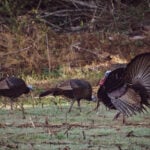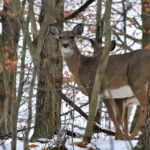LAST UPDATED: May 12th, 2022
Turkey season is winding down across much of the country, but if you’ve still got tags, now is the time to make your move.
Here’s a look at some last minute moves to kill a late season turkey before the buzzer.
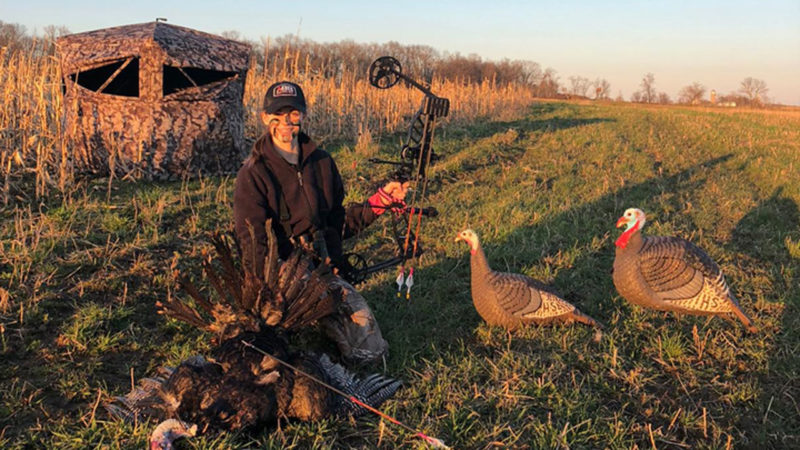
Get Aggressive
The late season is not the time to lay back and watch the show. That move may be why you’re still sitting on an unpunched tag in your pocket. Now is the time to push in tight. With foliage on the trees and landscape, you can get away with slipping in tighter to the roost, or move closer to a gobbler on the ground.
Gobblers get lazy in the late season. They’ll often ignore your calls as they stand their ground. Get more aggressive at this time and make your move to them.
Go Easy on the Calls
The late season is a good time to back off on your calls. Sure, we still love to hear a bird gobbling, even in the late season. But the reality is, it’s all slowing down. He’s gobbling less – and the hens are talking less as well.
Pay attention to the flock talk at this time. You’ll notice it’s slim to none. You don’t typically hear a lot of yelping from the ladies. If you’re calling your guts out with yelps, cutting and cackling, and wondering why those gobblers won’t give you the time of day, it’s likely because of over-calling. It’s not natural, and the longbeards usually know it.
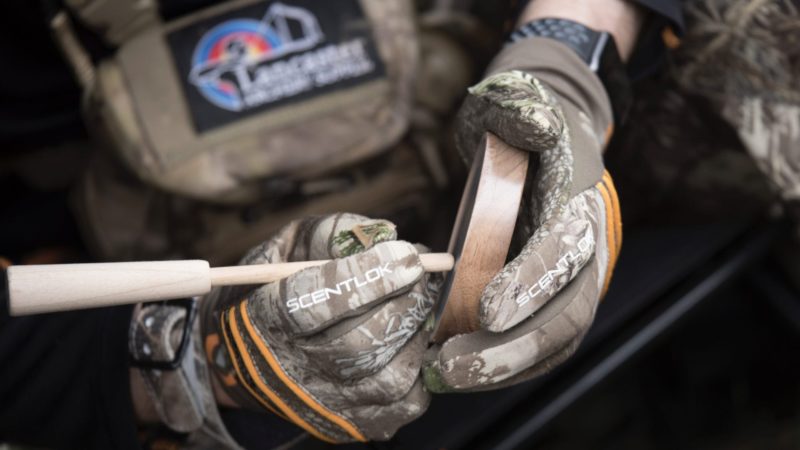
Mix Up Your Decoys
The late season is a good time to mix up your decoy spread. Get away from the same routine you’ve used all season. By scaling back, or adding to, you can change up what the local gobbler sees when he comes on the scene.
Don’t keep using a strutter decoy if the gobbler you’re after appears to be call-shy and decoy shy. If he’s been whipped by a dominant bird all season, he’s not likely to want to come to a fight.
Be There Early
The late season provides the best time of the year to ambush your bird. No, it may not be as exciting as calling a bird in close, but it works. The key is to get in early to the field, ridge, or strut zone you have predetermined him to be hanging out on.
Get in well before daylight and you can slip in and get set up while he’s snoozing on the roost. Again, the key is to go early. This won’t work if it’s already breaking day.
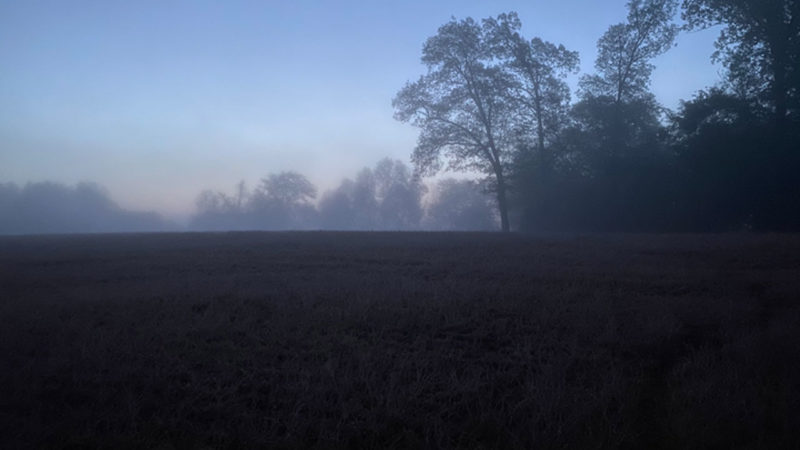
Stay With Him
It’s easy to head back to the truck in the late season when a gobbler flies down and shuts up. But chances are he’ll pop off just enough to keep you posted on his whereabouts.
He may only gobble once every hour or so, but if you’ll stay with him you can be there when he talks and make your move accordingly. Every gobble he belts out tells you just how much of a move you can make. But you gotta be close to hear it, so stay with him. It’s a passive-aggressive move that can pay off big.
Intercept Him on the Way to Roost
Afternoon hunts can be hard to beat when it comes to late season hunting. Turkeys seem to let their guard down just a bit in the afternoon. Tough gobblers are hard-headed when they first fly down from the roost in the morning.
But everything changes throughout the day as they get lonely and are more apt to come check things out at your setup in the afternoon.
Don’t blow up a roosting location by setting up right at the roost, but by backing off and catching them on the way to roost, you can up your odds of punching a late afternoon tag in the late season.
Conclusion
There’s still time! Don’t throw in the towel just yet. Turkey hunting in the late season can be feast or famine.
Use the tips mentioned above to punch your turkey tag before the buzzer this season.

 By
By 